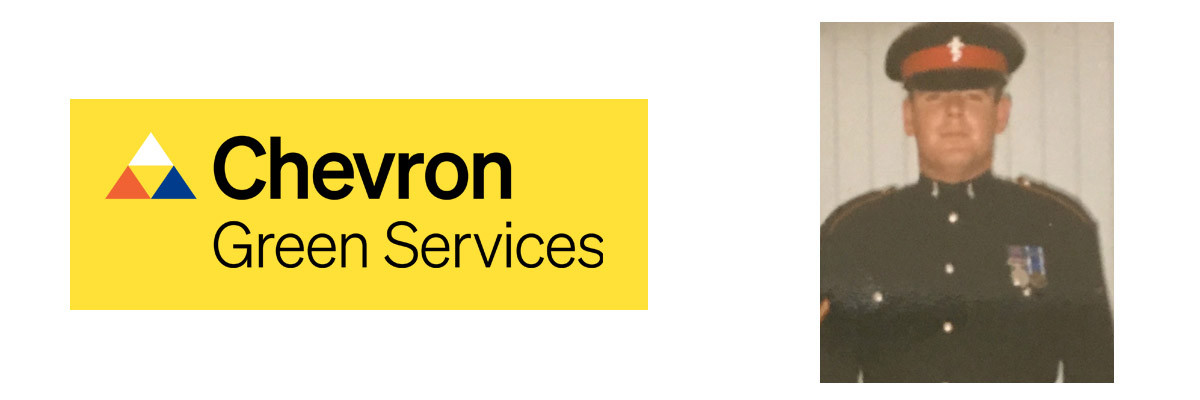
“I joined the army as an apprentice vehicle mechanic in the REME on May 2nd, 1988, at the age of 17, almost straight from school. Almost 11 years later, I decided it was time to move on from the Armed Forces and pursue a career in civvy street.
I was now married and looking at what career I could follow as there was not much call for an A mech (tank mechanic) out in the wide world. I decided to follow a career in IT and took my resettlement fund and put it towards a computer hardware engineers course which promised guaranteed work on completion, or your money back. The course worked well, and I got a job in IT which I followed for 6 years until I could not stand it any longer and had to get back outdoors.
I changed my role again and pursued a career in tree surgery and tree care, just to get back outside and in the environment, sitting at a desk, in front or 6 screens looking at code and numbers was not me and I wanted to get muddy and dirty again. I decided on a Foundation Degree to help put me a few rungs further up the ladder than the bottom in the new career and through a winding pathway ended up here at Chevron Green Services as the Consultancy Director looking after the arboriculturists, Ecologists and Environmental Specialist providing our range of services to the current client base and to new clients.
That is a very short synopsis of my career path from REME Mechanic to now being the Consultancy Director of an Environmental consultancy, but that is by design as the focus should not be about my career but focusing on some of the issues and obstacles I have faced, and which might be faced by other in the similar scenarios.
My initial fears on leaving the forces were based around leaving the security of a job where lots of things were done for you, if you were single you had food and accommodation paid for each month, in the wide world you had to pay for food, find accommodation, pay for it along with all the other essentials items you would need, you might need to pay the tax office, gas supplier, electricity supplier and all these things which you had not been exposed to before and I have to say that even in 1999 the resettlement courses were very good at explaining these requirements and of course I took advice and information from the experts in the field, civilians who had been dealing with these issues for a fair more years than I had!
Finding work, interviews, working for companies and in the corporate environment is also tough but again the resettlement courses and advice I received was really spot on and helped me prepare for interviews and gave me the finer details which I would need to hopefully succeed in the big wide world.
At the end of it though and when I look back I already had been taught everything I needed to make a go of it during my time through basic training and beyond. Resilience, adaptability, methodical, logical, organised, attention to detail, ability to work well as a team, a sense of humour (although you do need to reign it in a bit, raw squaddie humour is not welcome in all places ??) and an ability to get on with it are the essential traits and characteristics taught during the forces and they are the corner stones needed to make a career outside of the forces. Whilst you are not taught the exact details of how to fill in a tax form, or set up an electricity account, or discuss at interview why you are a good fit for the role you, the forces does give you the corner stones as noted before to work with and the confidence, personal pride and self-worth to use them to achieve what you would like to do to the best of your ability.
Like me, if you don’t get it right the 1st time there is always time for change from a job you are not enjoying to the job you want to do.”
